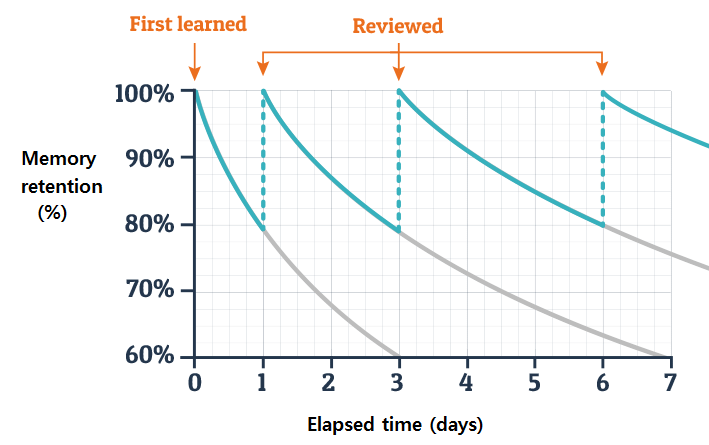Spaced repetition is an important active study strategy to make sure that you can recall information over a longer period of time. You put a lot of work into learning new information, you don't want to forget it before that next exam or as you move into higher level coursework! Students always wonder how often they should study. When asked this, it's important to look at how our brain works: if we learn something and we are not regularly using that material, our brain will forget about it. The diagram below shows the Ebbinghaus Forgetting Curve. In it, we can see that we quickly forget information after learning it.

How do we help fight the curve and convert information to long-term storage? Spaced Repetition. This study style uses shorter, but more frequent study sessions to help you retain and understand more information. Think about it like learning a sport or instrument. You aren't likely to make a good amount of progress if you only practice once every week or two, but consistent engagement with the content will make you proficient in no time!
Remember, rereading is not the same as recalling! As you practice spaced repetition, remember to practice RECALLING information rather than just looking over information again multiple times.
If you look at it's place on the learning cycle, you can see that this is a time to play around with the information soon after class allows you identify which info was truly hard for you. This allows you to efficiently plan your study sessions based on what info was most difficult for you!